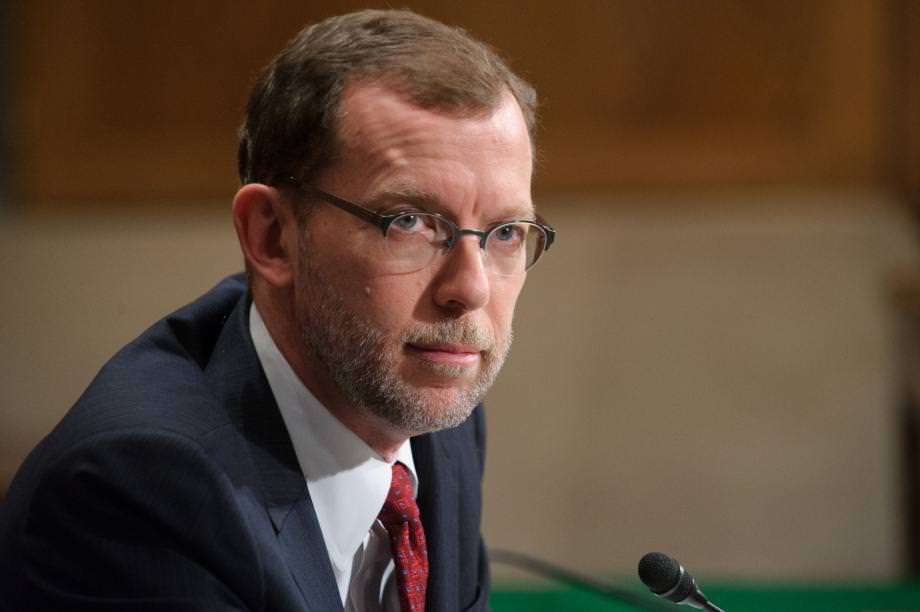The CBO Was Created to Provide a Check on Executive Power

An unsigned editorial in The Wall Street Journal today calls for Republicans to better control the institutions of Congress—namely the Congressional Budget Office (CBO) as well as the Joint Committee on Taxation (JCT)—ideally by abolishing them entirely. But it does not portray the history and purpose entirely accurately, and, as a result, is mistaken what would likely happen if the office were to be shut down.
The CBO, according to the editorial, "was created by Democratic majorities to counter GOP Presidents and support the Democratic agenda of expanding government." This misunderstands the conflict that gave rise to the office. The legislation that created the CBO didn't come from a partisan dispute, but a long-brewing power struggle between the executive and legislative branches.
As Philip Joyce writes in his book on the CBO's role and history, in the late 1960s and early 1970s, Congress became "frustrated with what it perceived as its domination by the executive branch in the budget-making process." For decades, the legislative branch had been understood to be subordinate to the administration when it came to budgeting. But starting with President Lyndon Johnson—a Democrat, notably—Congress became increasing frustrated with its lesser status in the budgeting process, and with the way the administration exerted its greater power. As Joyce notes, President Johnson promised in his 1967 budget report that military operations in Vietnam could be funded along with new Great Society programs like Medicare and Medicaid. The following year, however, he called for new taxes the following year to fund them. Congress wasn't happy.
This was the essential problem that Congress was trying to solve: a powerful executive branch with incentives to offer conveniently misleading, overly rosy projections about the costs and budgetary impacts of major federal expenses like war and entitlements. Congressional frustration boiled over during the Nixon administration in a dispute over impoundment (which as Joyce explains was less about spending limits and more about which branch had the authority to enforce spending limits), and the Congressional Budget Office was born.
Basically, the CBO was created as a budgetary power center that could check the influence of the administration's Office of Management and Budget (OMB). This was practically explicit in the Senate's recommendation that legislation be passed creating what was then referred to as the Congressional Office of the Budget, because Congress needed "a highly competent staff to guide it in fiscal policy and budgetary considerations, similar in expertise of the President's Office of Management and Budget."
The Journal editorial argues that because CBO's staffers aren't elected, there's no democratic accountability. "The wisest course," the editorial says, "is to abolish CBO and Joint Tax and allow open debate about the tax and spending implications of policy changes. Let the politicians with the authority to make these decisions be accountable for the results." The editorial acknowledges that this may not be possible, and more reasonably urges Republicans to pick a new CBO director if this is too much, but this drastic step seems to be the ideal.
If the CBO were to be abolished, however, the most likely outcome would be that power and authority would return to the executive, where OMB (which is also staffed and managed by unelected individuals), would once again be the most influential government player in the budgetary ballgame. To the extent that individual congressional offices or committees might take the job of estimating legislation and budgetary effects themselves, they too would be unchecked by any powerful neutral arbiter, which can also lead to misleading, overly optimistic projections. One of CBO's first acts after its creation was to help tank a universal health care plan put forward by Ted Kennedy—by estimating that the plan would cost three times more than Kennedy's office had indicated. In general, members of Congress, regardless of party, are not known for the precise or accurate explanations or estimates of budget details.
This is not to say that leaving things exactly as they are is the only reasonable choice. I believe there is a good case for reform at the CBO, though the risks of wholesale overhaul should be clearly understood. (It's worth reading Avik Roy's measured, well-argued case for reforming the office, also in today's Journal.) But if you're looking to shut down government offices and agencies, one that tells us how much stuff costs and how deeply we're in debt should be pretty far down the priority list. Simply getting rid of the CBO would further empower an executive branch that already has too much power, and, in the process, make wise, informed budgeting and policymaking even more difficult than it already is.
Free Minds and Free Markets aren't free! Support Reason's annual Webathon with a tax-deductible donation and help change the world in a libetarian direction. For details on giving levels and swag, go here now.
